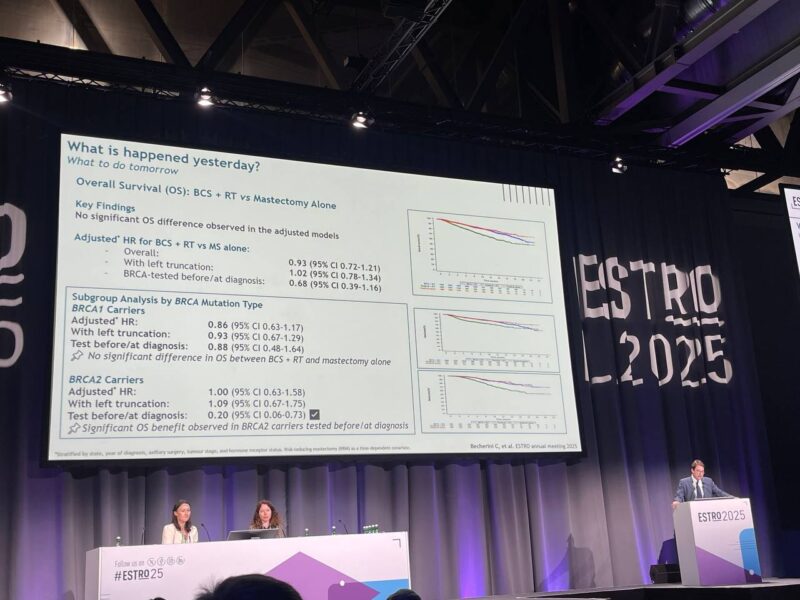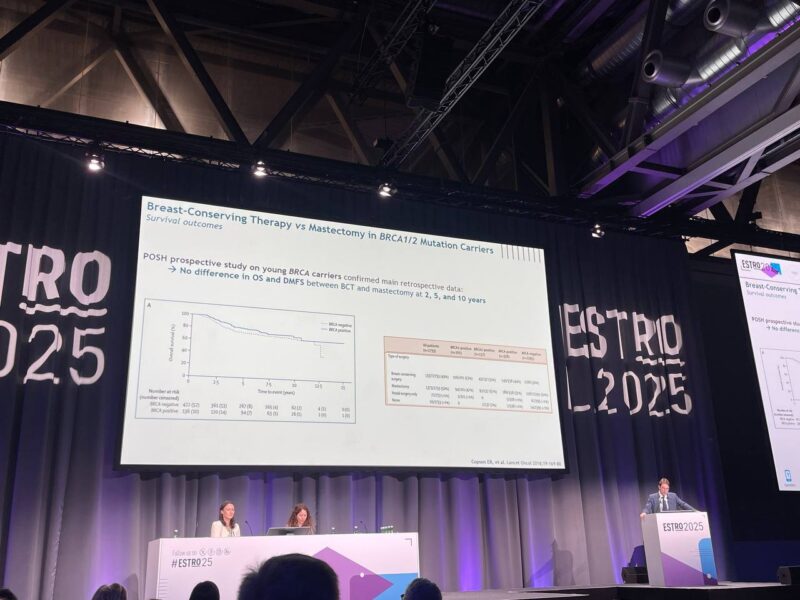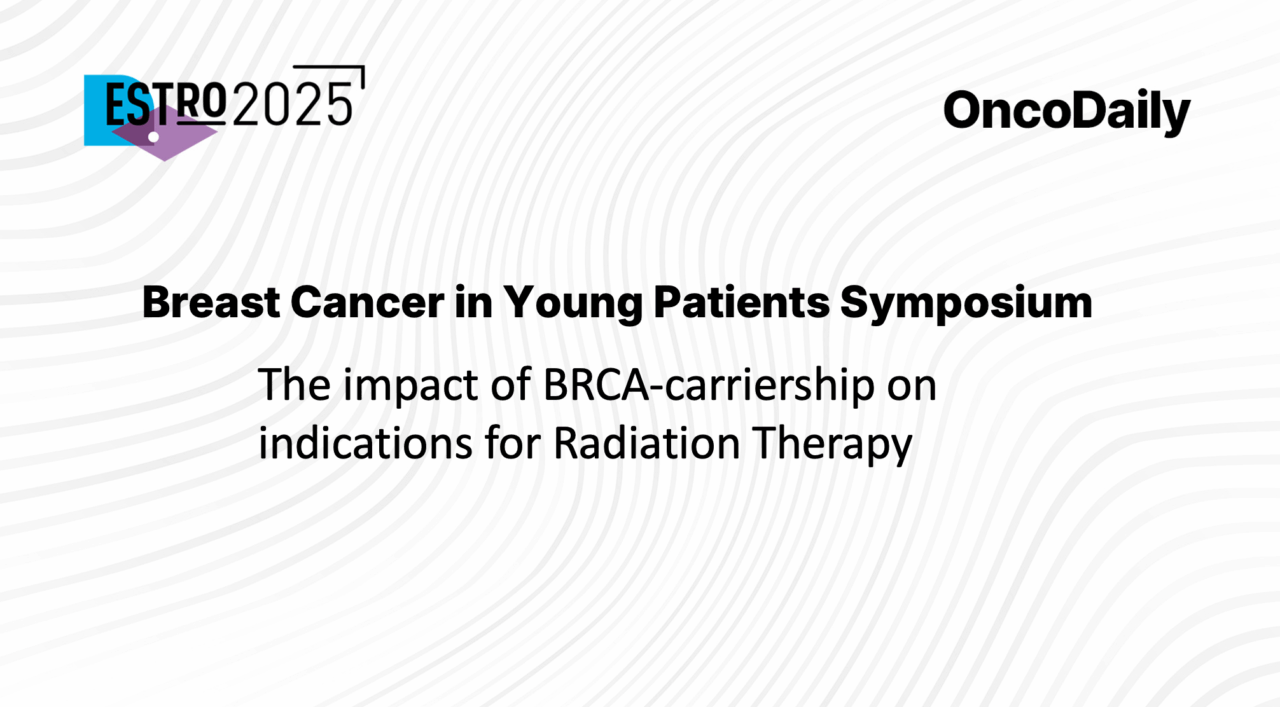Fresh from the Podium at ESTRO 2025! Prof. Icro Meattini introduced recent insights into the management of BRCA1/2-mutated breast cancer, highlighting how these hereditary tumors exhibit distinct biological and clinical features compared to sporadic breast cancer.
Background
Many studies have found that breast-conserving therapy (BCT) with radiation offers similar survival to mastectomy in women with BRCA1 or BRCA2 mutations, as long as they receive the right systemic treatment. However, certain factors—like being younger, having aggressive tumor types, or the kind of additional treatment given—can affect the chances of cancer coming back.
Mastectomy is often chosen by BRCA carriers because it lowers the risk of cancer returning, especially in the other breast. For younger women, doctors often recommend removing both breasts to reduce future risk. If the cancer has spread to lymph nodes, is large, or shows signs of spreading in vessels, radiation after mastectomy (called PMRT) is usually advised to improve local control and survival.

Conculsions of the discussion
Short-Term Outcomes
- BCT and mastectomy show equivalent local control in BRCA mutation carriers
Long-Term Survival
- Local control equivalence between BCT and mastectomy is still debated (higher risk with BCT)
- No difference in OS and DMFS between treatment groups
RT Benefits
- BRCA carriers benefit from radiation as much as sporadic breast cancer patients
BCT vs. Mastectomy
- BCT is a safe and effective option in BRCA1/2 carriers.
- No difference observed in overall survival (OS) or distant metastasis-free survival (DMFS) between BCT and mastectomy.
- Contralateral breast cancer (CBC) risk remains an important consideration:
- Especially relevant for BRCA1 carriers.
- May support the case for risk-reducing bilateral mastectomy in selected cases.

Study Limitations
- Most studies are retrospective with small sample sizes
- Limited use of systemic therapy in earlier studies
- Unclear distinction between LR and new primary tumours
- Lack of data on RT techniques and boost
Read ESTRO 2025 Updates on OncoDaily.



